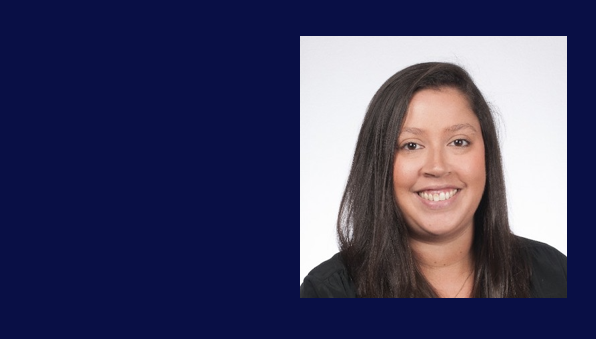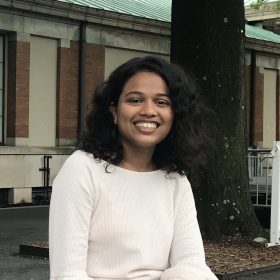Dr. Laura M. Sanchez is an Associate Professor of Chemistry and Biochemistry at the University of California Santa Cruz. A marine natural product chemist by training, her research focuses on the use of mass spectrometry to understand microbe and cell communication. She has recently co-authored a JoVE article detailing a method for Capturing small molecule communication between tissues and cells using imaging mass spectrometry.
On the International Day of Women and Girls in Science (11th February), we spoke with Dr. Sanchez about the relationship between her research focus on microbial ecology and her recent work on ovarian cancer, how her interest in this area developed, her views on developments in her field, and her advice for early career scientists.
Could you tell us more about the work you published in JoVE?
“We know that certain cancers, once they’ve colonized a primary organ or spot, like to go to certain places, and we don’t really know why — for instance, breast cancers usually move to the liver, hip and lungs,” says Dr. Sanchez. “There has been a lot of work on proteins, and we know certain things about genetic predisposition, but my training is in microbial ecology. In nature we know that chemical cues are important, and that pheromones and chemical gradients exist to help coordinate activities when organisms are in disparate locations.
What we are [asking] in our work is: does the same thing happen in the human body? Are there chemical gradients that attract some of these tumorigenic cells, and is that why they are going to specific organs? We are trying to ask the question: ‘What happens before you get a tumor?’ We came up with a cool set-up to test that. We knew that we had these cells that would form tumors in mice and healthy ovaries, and then we were asking if there was a chemical gradient that we could measure, through space. That’s what my lab does….and we did find small molecules to occupy this gradient. So we think the ovary has a very specific environment that attracts these tumorigenic fallopian tube cells towards it…. In my lab we are very interested in spatial chemical questions; ovarian cancer is just one of the things we work on.”
How did you become interested in cancer research?
“This was a direct product of my original hire at UIC (University of Illinois at Chicago), where I started my independent career,” notes Dr. Sanchez. In a conversation with one of her research collaborators, Dr. Joanna Burdette (Professor in the Department of Pharmaceutical Sciences at the University of Illinois at Chicago), she helped establish that ovarian cancer was a spatial problem. “I was not aware that it basically started in the fallopian tube and moved to the ovary, but yes, that’s a spatial question,” Dr. Sanchez explains. Dr. Sanchez notes that she did not have a background in cancer research before Dr. Burdette asked to collaborate on her research project on ovarian cancer.
What developments in your field are most exciting to you right now, and why?
“We use a technology that we call mass spectrometry; I think for me, one of the cool things is that the technology now is so much more sensitive and user-friendly than it ever used to be.” says Dr. Sanchez. “That has actually facilitated asking these more direct and applied biological questions… Because it’s become more straightforward, it allows us to focus on deeper applications rather than just, ‘I’m going to spend a week trying to make [the technology] work.’ I think the effort everybody has put forward in how we process data, how we collect data, how we analyze data has really facilitated the ability to ask applied biological questions. Technology development has come a really long way in just 10 years, which is amazing.”
What are some of your most memorable moments in your work as a scientist?
“I feel like there are so many, it’s hard to pick…I just feel like all of it has been a surprise. When I went to college, I did not realize that you could get a Ph.D. for free in the basic sciences … Even that realization was a game changer,” notes Dr. Sanchez, adding that she learned about the possibility of being funded for a Ph.D. during a summer internship. “I feel like that’s kind of what kicked everything off, and so I guess that was kind of unexpected.”
Any advice for early career researchers?
“I would say don’t be afraid to fail, because getting an advanced degree is learning how to fail gracefully,” advises Dr. Sanchez. “If everything worked out on the first go, we would all be done in a year, and I know it doesn’t and that’s okay. Persistence is just learning how to fail gracefully and really learn from those lessons to design the experiment better the next time, because everybody fails; it’s just how you recover from it that helps with longevity. And if you try these really high-risk projects and they pan out, it’s awesome. So yeah, just being okay with failure is absolutely necessary, but that’s what it’s for — it’s training.”
To commemorate the International Day of Women and Girls in Science, our team has curated a special playlist of JoVE science videos. This playlist will remain free to access until February 28th, 2021.



